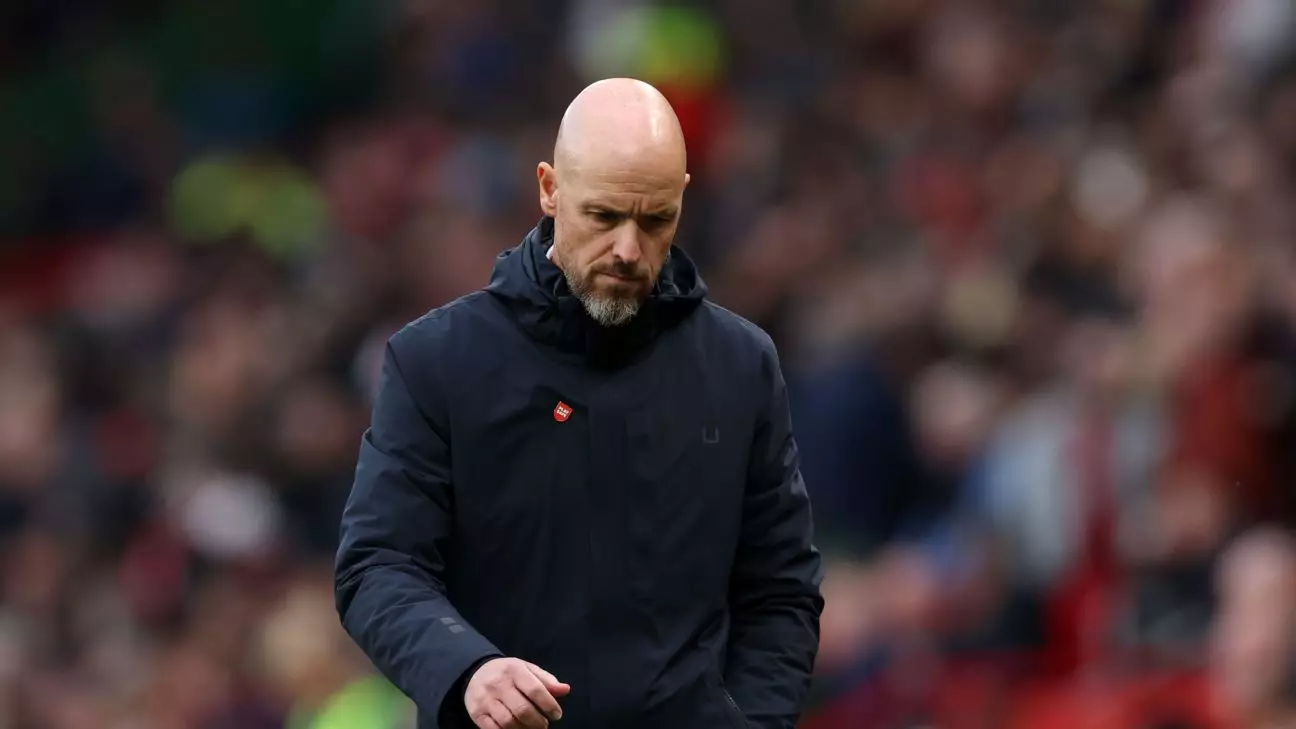In the high-stakes world of football management, few things are as unforgiving as a significant home defeat. Manchester United’s recent 3-0 loss to Tottenham Hotspur has left many questioning the future of manager Erik ten Hag. Despite the disheartening outcome, which was marked by a first-half red card for Bruno Fernandes, Ten Hag maintains a defiant stance against the mounting pressure. With his side managing only three wins in eight matches this season, the focus is shifting, and scrutiny intensifies from both fans and club officials alike.
Ten Hag’s commitment to his vision is evident in his resistance to speculations of being sacked. He emphasized his understanding of the need for patience and cohesion amongst the ownership, staff, and players, suggesting that they are all aligned on their objectives. This united front could serve as a stabilizing factor, yet the results must follow to quell emerging dissent. Ten Hag’s approach appears to revolve around a long-term strategy, but the immediate demands for success cannot be overlooked, particularly in the fierceness of Premier League competition.
Lessons from Set-Piece Failures
One area of concern for Ten Hag is his team’s defensive fragility, particularly highlighted by the goals conceded through lapses in midfield and defensive organization. His frustration was palpable after conceding a similar goal in consecutive matches, showcasing the need for improved tactical discipline. The alarming pattern of allowing opposing defenders to surge through the midfield emphasizes a critical flaw in the team’s formation and strategy.
This is not merely a statistical issue but a psychological one as well. The sharp reiteration from Ten Hag that these mistakes should not recur indicates that he is not only concerned with the technical aspects of play but also with how these errors affect team morale and confidence. His insistence that the players are still receptive to coaching reflects an awareness that motivation and learning are intrinsically linked to performance on the pitch.
The Road Ahead: Meeting the Challenges
Looking ahead, Ten Hag realizes that the upcoming fixtures against FC Porto in the Europa League and a difficult league clash with Aston Villa will be pivotal. These matches serve as a litmus test for the resilience of his tactical implementation and the players’ ability to adapt and execute under pressure. The looming international break might soften the immediate fallout, but the call for accountability will grow louder if performances do not improve.
In light of this, Ten Hag has portrayed an optimistic outlook, emphasizing the importance of learning from each match experience. His commented focus on treating each game as a fresh opportunity could invigorate his players and instill a renewed spirit of determination as they strive to rectify early-season shortcomings.
Erik ten Hag’s leadership at Manchester United is currently being tested through adversity. While challenges mount, his commitment to a unified approach and learning from setbacks emphasizes the potential for future growth. However, the coming weeks will be pivotal in determining whether his vision can transform into tangible success on the pitch.

